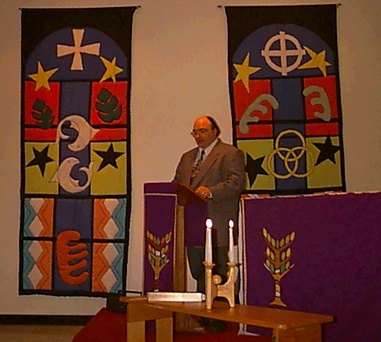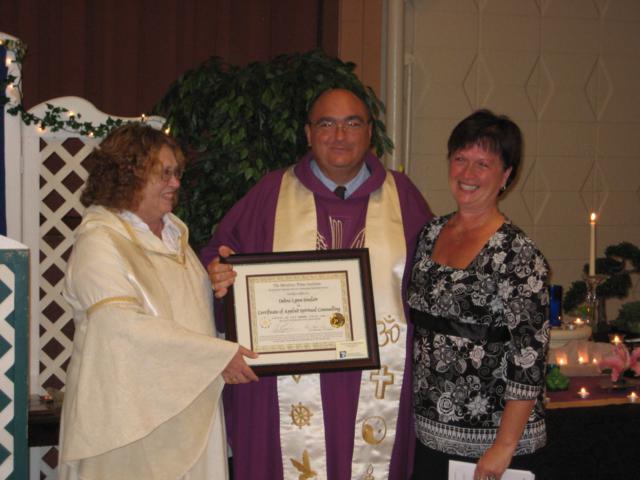What is an Interfaith Minister?
An OIIM Interfaith Minister has studied at least three, and usually six, different major religious traditions and is trained to help the individual to develop a sense of personal spirituality, drawing on the spiritual practices of many different religions. There is no specific doctrine with respect to matters of faith for the Interfaith Minister. There is a philosophy on the Interfaith Tradition as a spiritual expression as explored in Rev. Barry King’s book, Many Paths One
Truth - Affirmation of Spirit. In addition, OIIM has a set of basic principles, OIIM Interfaith Principles and ethics, A Code of Ethics for Spiritual Directors, within which the Ordained OIIM Interfaith Minister must function in order to maintain his/her status.
The lay and ministry levels are stages in OIIM’s training for Ordained Interfaith Ministers. Not all Lay Ministers go on to becoming fully ordained. All Ordained Interfaith Ministers are clergy within OIIM and as such are able to pursue provincial, state or country licensing as clergy. An Ordained Interfaith Minister is fully trained to perform all religious services such as weddings, funerals, baptisms, etc.
On the road to ordination, a student may apply to OIIM for the status of CASC or Lay Minister of RSPc, RSPh, RSPd or RSPm. The CASC and Lay Minister status allows the student (within their scope of practice) to perform religious and spiritual ministrations in their community, establishing themselves and the Interfaith Ministry. Lay Ministers can start up Chapters, perform Interfaith Celebrations and do most ministrations except for a few religious ceremonies.
CASC graduates studying a Lay or Ordained Ministry program can provide services at the intern level in their communities, thus establishing themselves and the Ministry.
Truth - Affirmation of Spirit. In addition, OIIM has a set of basic principles, OIIM Interfaith Principles and ethics, A Code of Ethics for Spiritual Directors, within which the Ordained OIIM Interfaith Minister must function in order to maintain his/her status.
The lay and ministry levels are stages in OIIM’s training for Ordained Interfaith Ministers. Not all Lay Ministers go on to becoming fully ordained. All Ordained Interfaith Ministers are clergy within OIIM and as such are able to pursue provincial, state or country licensing as clergy. An Ordained Interfaith Minister is fully trained to perform all religious services such as weddings, funerals, baptisms, etc.
On the road to ordination, a student may apply to OIIM for the status of CASC or Lay Minister of RSPc, RSPh, RSPd or RSPm. The CASC and Lay Minister status allows the student (within their scope of practice) to perform religious and spiritual ministrations in their community, establishing themselves and the Interfaith Ministry. Lay Ministers can start up Chapters, perform Interfaith Celebrations and do most ministrations except for a few religious ceremonies.
CASC graduates studying a Lay or Ordained Ministry program can provide services at the intern level in their communities, thus establishing themselves and the Ministry.


